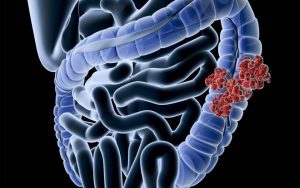Have you ever lost your loved ones to colorectal cancer? With the colorectal cancer (CRC) being the most common cancer in Malaysia among men and the third most common cancer among women (according to the National Cancer Registry Report 2003-2005), it is even more daunting when you know that CRC is a hereditary disease.
The question is, colorectal cancer due to a genetic connection only, or is there any other risk factors involved? To ensure you know the important facts about colorectal cancer, we interviewed Sunway Medical Centre’s Consultant Gastroenterology and Hepatology, Dr. Sheikh Anwar Abdullah.
“Colorectal cancer is a cancer (growth, lump or tumour) that starts in the colon or the rectum which is why this type of cancer is also known as bowel cancer, colon cancer or rectal cancer. The colon and the rectum are parts of the large intestine, which is the lower part of the body’s digestive system.
Colorectal cancer often begins as a growth called a polyp, which may form on the inner wall of the colon or rectum. Some polyps become cancer over time,” explains Dr Sheikh.
“What we focus on here are individuals who have hereditary risk for cancer, meaning they’re born with a higher chance to develop cancer compared to others. However, it doesn’t mean they’ll get it, but they’re at higher risk of it. For example, people with a first-degree relative (parent, sibling or offspring) who has had colorectal cancer have 2-3 times the risk of developing the disease compared to individuals with no family history. About 20% of all colorectal cancer patients have a close relative who was diagnosed with the disease,” added the consultant, who has had a 5-year stint as an Associate Professor in UKM prior to Sunway Medical Centre.
To clear misconceptions that colorectal cancer is due to hereditary and family history, Dr. Sheikh shares other risk factors which include the individual’s personal medical history, behavioral risk factors, weight factors, diet, and lifestyle. “In terms of personal medical history, people who have chronic inflammatory bowel disease, a condition in which a colon is inflamed over a long period of time, have a higher risk of developing colorectal cancer that increases with the extent and duration of the disease. Also, many studies have found that patients with diabetes have an increased risk of colorectal cancer,” stressed Dr. Sheikh.
“A history of adenomatous polyps also increases the risk of colorectal cancer. This is especially true if the polyps were large or if there was more than one. It simply means a syndrome where individuals have a very high chance to develop lots and lots of polyps – I mean hundreds to thousands of colorectal polyps – that are of the precancerous type, what we call adenomas. And this is a hereditary condition, therefore it can run in families,” he added.
Not surprisingly, smoking can also cause colorectal cancer. In November 2009, the International Agency for Research on Cancer reported that there is sufficient evidence to conclude that tobacco smoking causes colorectal cancer. Similarly, colorectal cancer has been linked to moderate and heavy alcohol use. People who have a lifetime average of 2 to 4 alcoholic drinks per day have a 23% higher risk of colorectal cancer than those who consume less than 1 drink per day.
Finally, for all meat lovers out there, this is something to take note of. High consumption of red and/or processed meat increases the risk of both colon and rectal cancer. The reasons for this association remain unclear, but may be related to carcinogens (cancer-causing substances) that form when red meat is cooked at a high temperature for a long period of time.
Adding that this condition is reversible if detected and treated early, Dr. Sheikh stresses that the most important thing to do is to prevent progression of the disease. “Start by adopting a physically active lifestyle”. He gave an example of recent review of the scientific literature which found that the most physically active people have a 25% lower risk of colon cancer than the least active people.
Dr. Sheikh concluded by sharing that finding and removing polyps can prevent colorectal cancer. Deaths from CRC have decreased with the use of colonoscopies and fecal occult blood tests, which check for blood in the stool.

What are the Symptoms of Colorectal Cancer?
People who have polyps or colorectal cancer don’t always have symptoms, especially at first. Someone could have polyps or colorectal cancer and not know it. If there are symptoms, they may include:
- Blood in or on your stool (bowel movement).
- Pains, aches, or cramps in your stomach that don’t go away.
- Losing weight and you don’t know why.
If you have any of these symptoms, talk to your doctor. These symptoms may be caused by something other than cancer.
Reduce your risk of colorectal cancer.
- Get screened regularly.
- Maintain a healthy weight throughout life.
- Adopt a physically active lifestyle.
- Consume a healthy diet with an emphasis on plant sources; specifically:
a) Choose foods and beverages in amounts that help achieve and maintain a healthy weight.
b) Limit consumption of red and processed meat.
c) Eat at least 2½ cups of vegetables and fruits each day.
d) Choose whole grains instead of refined grain products. - If you drink alcoholic beverages, limit consumption
- Avoid tobacco products.
 Dr. Sheikh Anwar Abdullah
Dr. Sheikh Anwar Abdullah
Consultant Gastroenterology and Hepatology
Sunway Medical Centre


